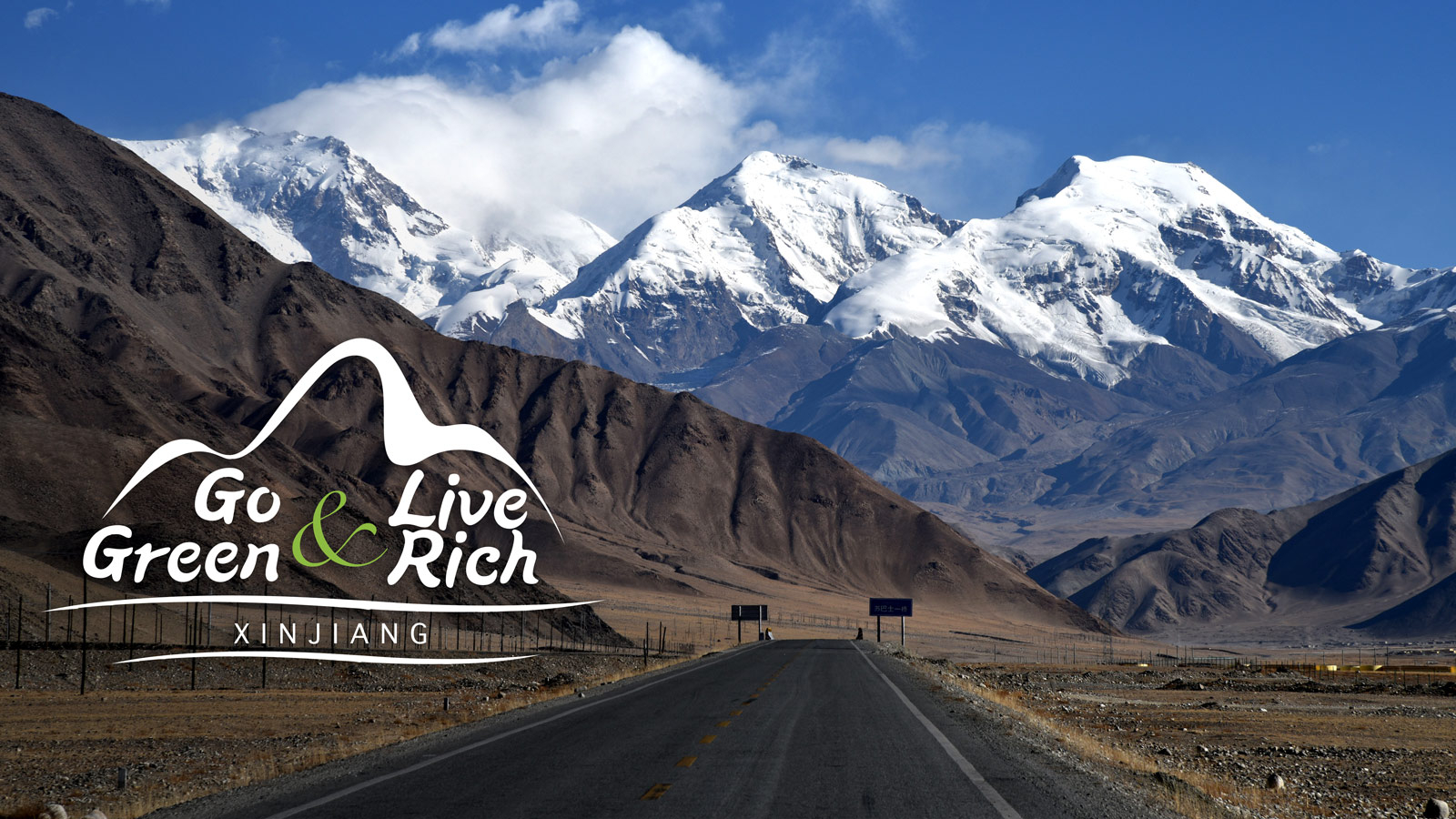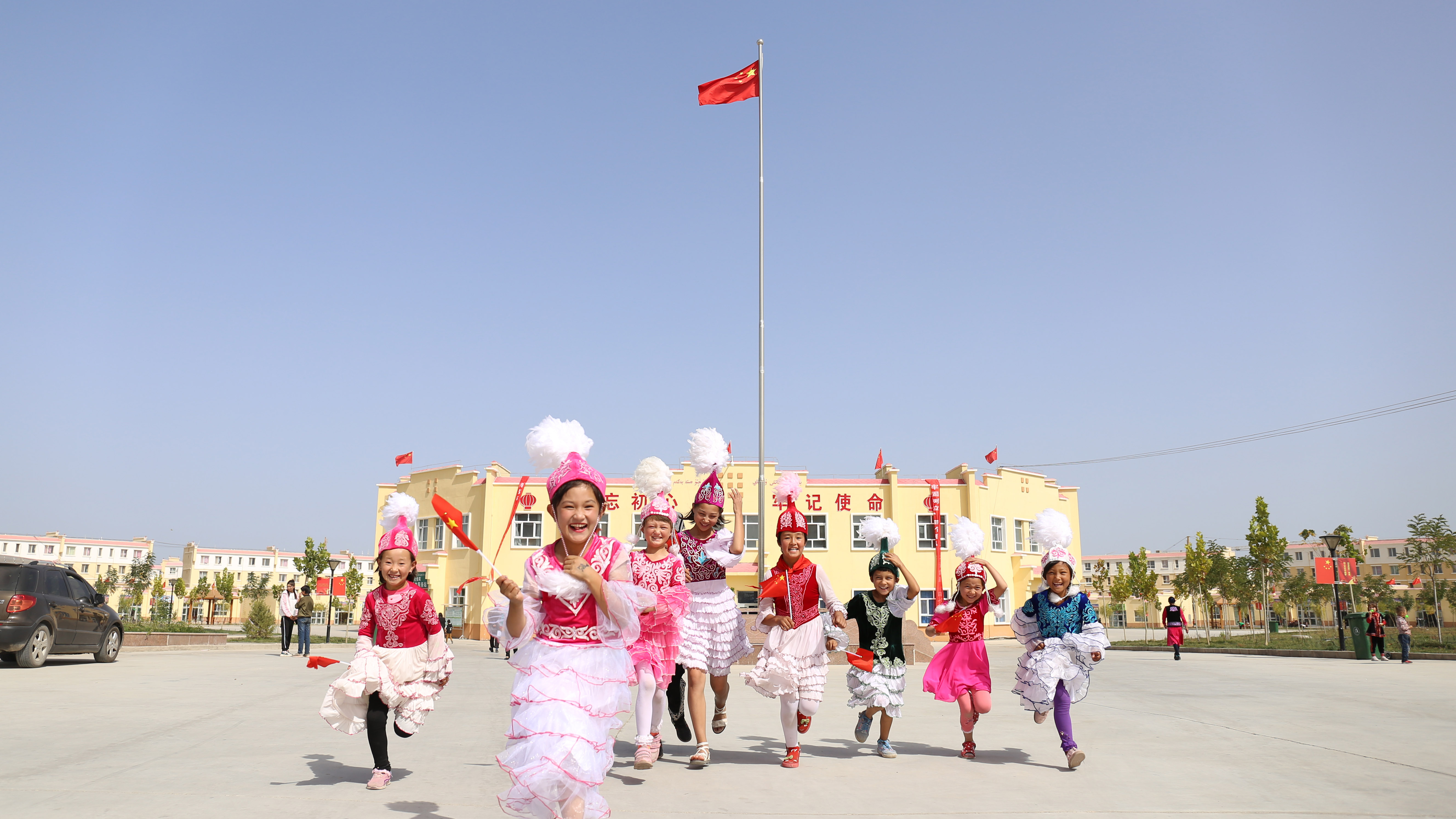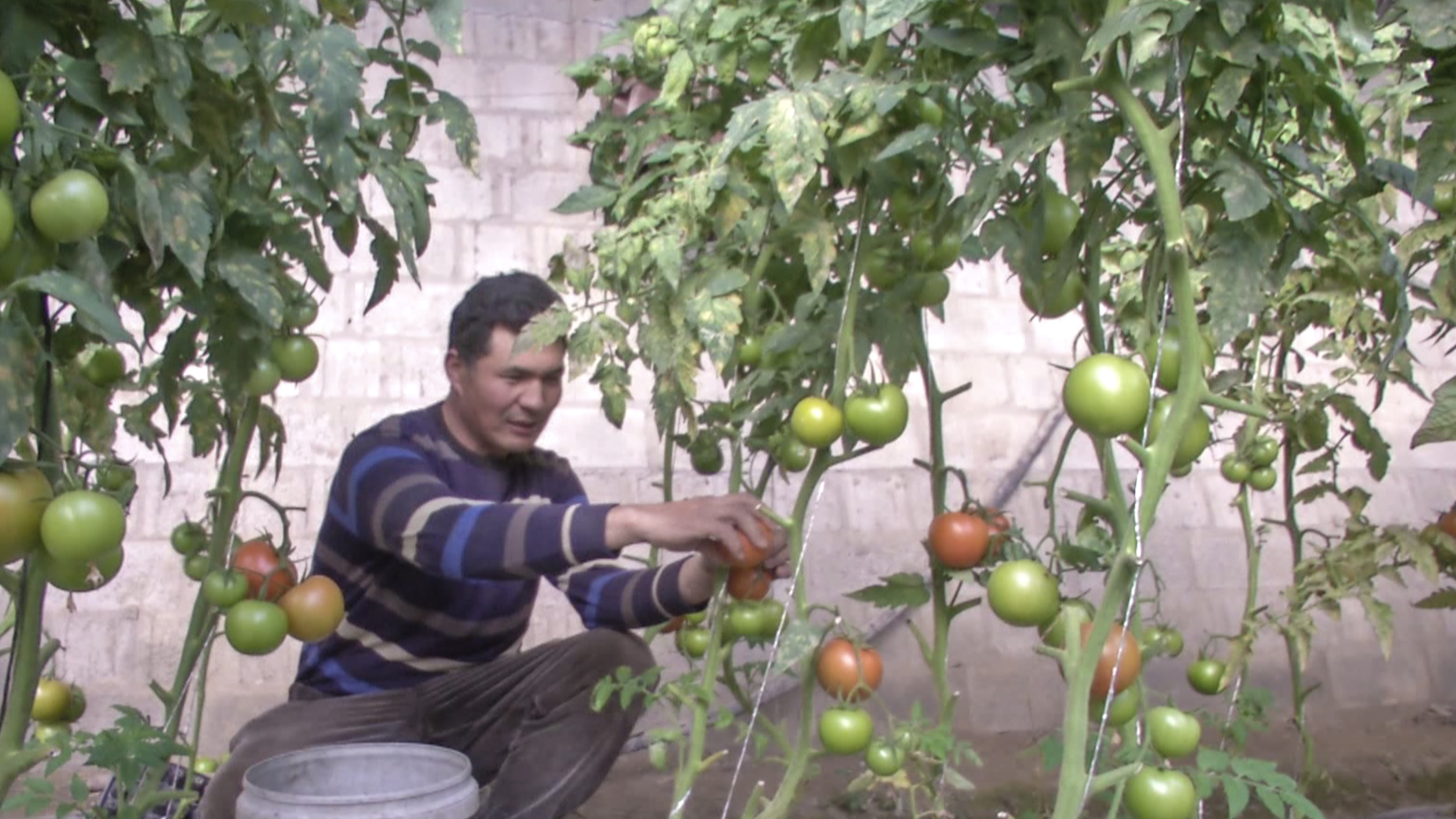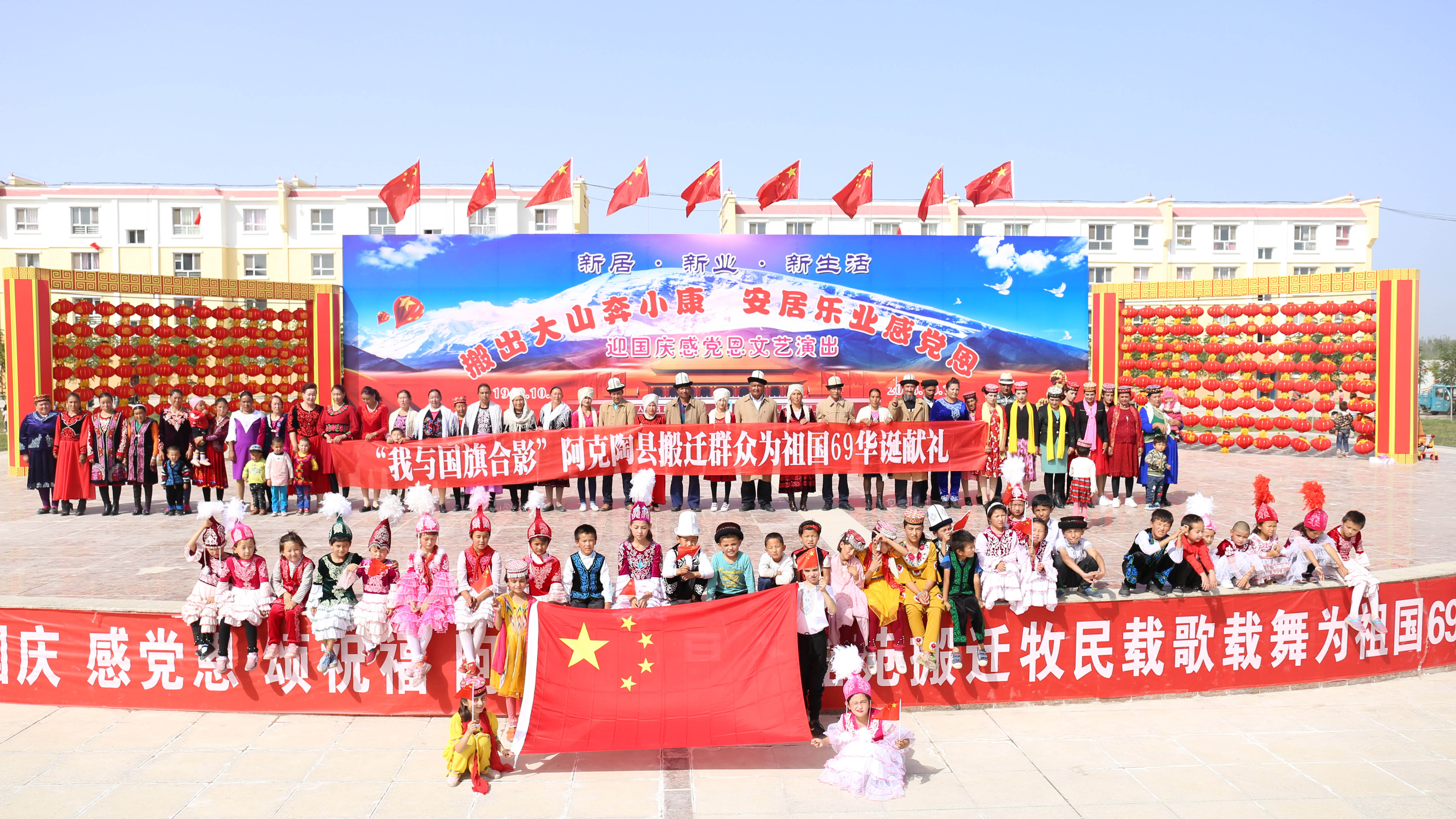01:13

Sitting east of the Pamir plateau and to the west of the Tarim Basin, Aktau County has impressed visitors with its stunning snowy mountains and desert. But beyond that, Aktau County is one of the poverty-stricken counties given aid priority in China's Xinjiang Uygur Autonomous Region.
Patigul Mehmet has moved out from a remote mountainous area to a new community near the town three years ago. Her new house is fully furnished, with a heater, tap water, gas and even internet. She took out a picture – a stone house stuck in a rocky valley between two mountains – where her family lived for generations.

Aktau County is located in the southwest of Xinjiang Uygur Autonomous Region. /VCG
Aktau County is located in the southwest of Xinjiang Uygur Autonomous Region. /VCG
Aktau County is dominated by mountains, and the altitude of the area is generally 4,000-5,000 meters. The living conditions in the remote alpine zone are harsh. During winter, Patigul's family usually collected ice and snow and melted it for drinking or washing clothes. In summer, they needed to worry about the flooding since it could wash their house away.
Since the local government carried out a relocation policy for impoverished residents, she is living a different life now in a community called Kunlunjiayuan. This is a large relocation site near the county center with an area of about 138,000 square meters. Over 5,700 residents from the surrounding villages are settled here. Patigul has started a catering business with her husband, and their two children are able to have better education at the schools in the community.

Children playing in the Kunlunjiayuan relocation site. /Photo credits to the Publicity Department of Aktau County Party Committee
Children playing in the Kunlunjiayuan relocation site. /Photo credits to the Publicity Department of Aktau County Party Committee
The biggest challenge of moving is that people need to find another means of earning a livelihood. In the hinterland of the Pamir plateau, most of the local residents are nomadic or semi-nomadic. They don't have stable houses and live in cow hair felt tents all year round.
The geographical factors of Aktau has turned it a land without lush grassland, and overgrazing has exacerbated desertification. The statistics show that the vegetation coverage rate that animal husbandry mainly depends on is less than 10 percent.

Ashir Tahir picks tomatoes in his greenhouse. /Photo is a screenshot
Ashir Tahir picks tomatoes in his greenhouse. /Photo is a screenshot
Ashir Tahir earned 60,000 yuan (about 8500 dollars) the first year when he moved out from the mountain and ended his herding life. "I was very worried at the beginning when the government provided me the chance to grow greenhouse vegetables, I was afraid I couldn't make it. But unexpectedly, I made a lot of money in the first year," said Ashir. To help the relocated families find a new of living, the local government has provided over 600 vegetable greenhouses to people who willing to take over.
While the once-herdsmen in the mountains become farmers downhill, the overgrazed environment of the alpine area can also take a break and recover by itself.

Herdsmen and their families who have moved from the mountainous area to the new community are celebrating China's National Day holiday. /Photo credits to the Publicity Department of Aktau County Party Committee
Herdsmen and their families who have moved from the mountainous area to the new community are celebrating China's National Day holiday. /Photo credits to the Publicity Department of Aktau County Party Committee
Go green and live rich
Ecological poverty alleviation is a poverty reduction model that combines ecological protection with poverty alleviation. Some areas suffer from poverty due to their harsh natural environment, while some lack the sustainable and scientific use of natural resources. Through participation in ecological protection and the development of ecological industries, villagers can be lifted out of poverty while protecting Mother Nature. This series not only uncovers the stories behind China's poverty alleviation policy, but also displays a portrait of ordinary people.
(Cover image designed by CGTN's Liu Shaozhen)
(If you want to contribute and have specific expertise, please contact us at nature@cgtn.com)